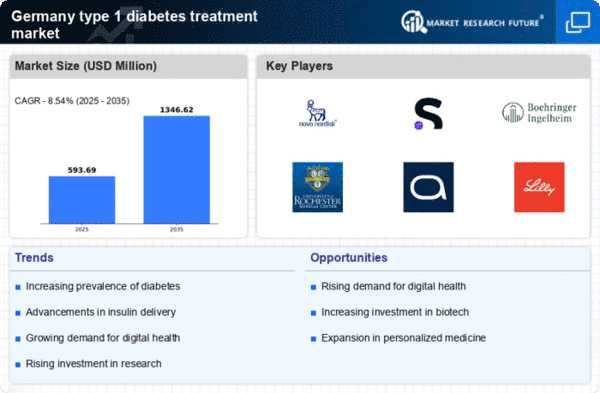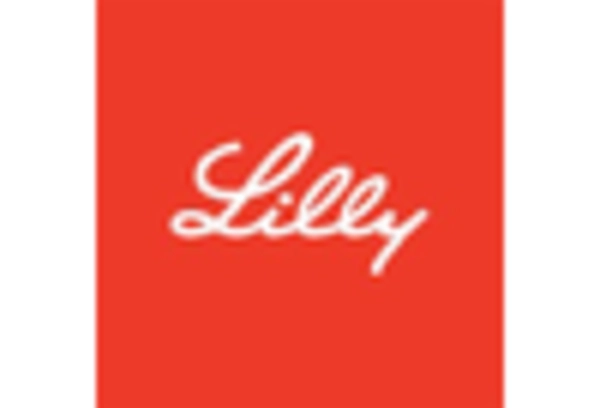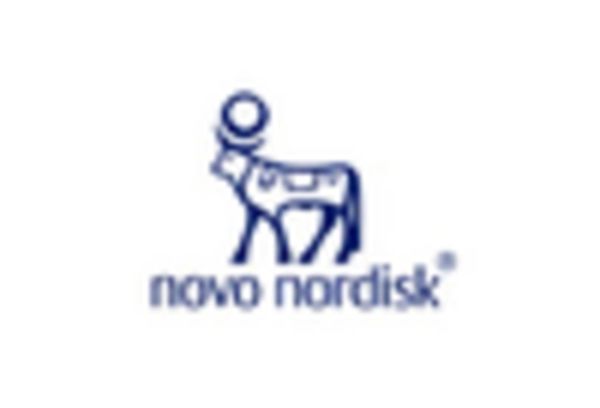Increased Awareness and Education
The heightened awareness and education surrounding type 1 diabetes significantly impact the type 1-diabetes-treatment market. In Germany, various organizations and healthcare providers are actively engaged in promoting diabetes education, which empowers patients to manage their condition effectively. This increased awareness leads to earlier diagnosis and treatment initiation, ultimately improving patient outcomes. Furthermore, educational initiatives encourage patients to adopt healthier lifestyles, which can mitigate complications associated with diabetes. As patients become more informed about their treatment options, the demand for advanced therapies and technologies in the type 1-diabetes-treatment market is likely to rise. The emphasis on education and awareness is expected to foster a more proactive approach to diabetes management, thereby driving market growth.
Advancements in Medical Technology
Technological innovations play a crucial role in shaping the type 1-diabetes-treatment market. The development of advanced medical devices, such as insulin pumps and continuous glucose monitoring systems, has transformed diabetes management in Germany. These technologies enable patients to monitor their blood glucose levels more effectively and administer insulin with greater precision. The integration of digital health solutions, including mobile applications and telemedicine, further enhances patient engagement and adherence to treatment regimens. As these technologies become more accessible, the type 1-diabetes-treatment market is likely to experience significant growth. Moreover, the increasing collaboration between tech companies and healthcare providers suggests a promising future for the development of smart devices tailored for diabetes management.
Government Initiatives and Funding
Government initiatives aimed at improving diabetes care in Germany significantly influence the type 1-diabetes-treatment market. The German government has implemented various programs to enhance diabetes management, including funding for research and development of new treatments. For instance, the Federal Ministry of Health allocates substantial resources to diabetes research, which has led to advancements in treatment options. Additionally, public health campaigns aimed at increasing awareness and education about diabetes management are likely to foster a more informed patient population. This, in turn, could lead to increased demand for innovative treatment solutions. The financial support from the government not only encourages pharmaceutical companies to invest in the type 1-diabetes-treatment market but also ensures that patients have access to the latest therapies.
Growing Demand for Insulin Products
The demand for insulin products remains a pivotal driver in the type 1-diabetes-treatment market. In Germany, insulin is a fundamental component of diabetes management, and the market for insulin products is projected to expand as the number of diagnosed individuals rises. Recent data indicates that the insulin market in Germany is valued at approximately €1 billion, with expectations for continued growth. This demand is fueled by the need for various insulin formulations, including rapid-acting, long-acting, and biosimilar insulins. Additionally, the increasing prevalence of type 1 diabetes among children and adolescents further contributes to the rising demand for insulin products. As healthcare providers seek to optimize treatment outcomes, the type 1-diabetes-treatment market is likely to see a surge in innovative insulin delivery systems.
Rising Prevalence of Type 1 Diabetes
The increasing incidence of type 1 diabetes in Germany is a primary driver for the type 1 diabetes treatment market. Recent statistics indicate that approximately 30,000 individuals are diagnosed with type 1 diabetes annually in the country. This growing patient population necessitates the development and availability of effective treatment options. As awareness of the disease rises, healthcare providers are more likely to invest in innovative therapies and technologies. The demand for insulin pumps, continuous glucose monitors, and other advanced treatment modalities is expected to surge, thereby propelling market growth. Furthermore, the rising prevalence of type 1 diabetes is likely to stimulate research and development efforts, leading to the introduction of novel therapies that could enhance patient outcomes in the type 1-diabetes-treatment market.
















